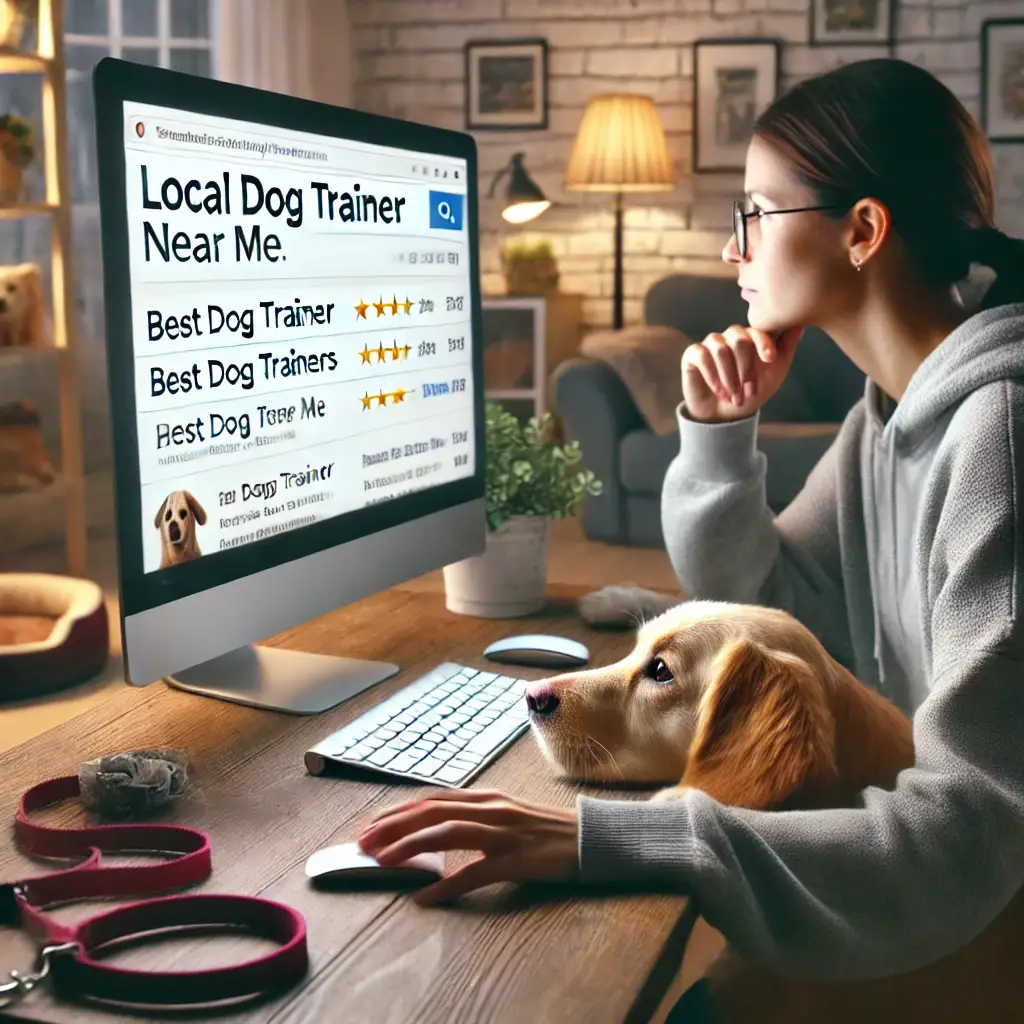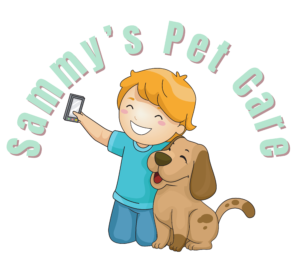More Tips
Check out our other posts

Finding the Best Pet Sitter Nearby
Finding the Best Pet Sitter Nearby Finding the right care for your pet can be a daunting task. Especially when

Locating a Skilled Dog Trainer Nearby
Finding the right dog trainer can be a daunting task. Especially when you’re searching for a “dog trainer near me”

5 Essential Puppy Training Mistakes to Avoid for a Well-Behaved Dog
Discover the top five puppy training mistakes and learn how to avoid them for effective and enjoyable training sessions. Enhance your puppy’s behavior with these expert tips.
Emerging Trends in Dog Training: Adapting to the Evolving Needs of Pet Parents
The dog training industry is witnessing significant transformations in 2024, reflecting the changing lifestyle of pet owners and advancements in
Introduction
Bringing a new puppy into your home is an adventure filled with joy, laughter, and, admittedly, a few challenges. These furry bundles of energy are not just pets but new members of the family, eager to explore and learn. The key to a harmonious life with your new companion lies in early training. Puppy training is not just about teaching basic commands; it’s about setting the foundation for a well-behaved, happy adult dog. In this guide, we’ll walk you through the essentials of puppy training, from housebreaking to basic obedience, ensuring your puppy grows into a well-mannered, sociable, and loving dog.
Understanding Puppy Behavior
Before diving into training techniques, it’s crucial to understand the basic psychology of puppies. Puppies are naturally curious, playful, and eager to interact with their environment. This period of exploration and learning is critical for their development. However, it’s also during this time that puppies may exhibit common behavioral issues such as biting, barking, and jumping. Understanding the ‘why’ behind these behaviors is the first step in effectively addressing them. For instance, puppies bite and chew not only as part of playful behavior but also due to teething. Recognizing these natural tendencies helps in creating a training approach that is both nurturing and effective.
Setting Up for Success
A successful training journey starts with the right setup. Preparing your home for a puppy involves more than just buying a bed and some toys. It’s about creating an environment that is safe, stimulating, and conducive to learning. Essential supplies for training include a crate, which aids in housebreaking and provides a personal space for your puppy, chew toys to manage teething and biting, and a leash and collar for safe outdoor adventures. Additionally, setting up designated areas for eating, sleeping, and playing helps your puppy understand and adapt to their new environment more quickly.
House Training Basics
House training is perhaps the most immediate concern for new puppy owners. It’s a fundamental aspect of early training that sets the stage for a clean, orderly home environment. Crate training is a highly effective method in this regard. It taps into a puppy’s natural instinct not to soil their sleeping area, thereby encouraging them to control their bladder. When combined with a consistent routine for feeding and potty breaks, crate training significantly eases the housebreaking process. It’s also crucial to manage and prevent accidents with patience and understanding. Remember, accidents are just part of the learning curve and should be addressed without punishment, using positive reinforcement to guide behavior.
Socialization and Exposure
The early months of a puppy’s life are a critical period for socialization. Exposing your puppy to a variety of experiences, people, and other animals in a safe and controlled manner lays the groundwork for a well-adjusted adult dog. Socialization helps prevent fear and aggression issues later in life. It’s important to introduce new experiences gradually and positively, ensuring each new encounter is enjoyable and non-threatening for your puppy. This could include quiet visits to a friend’s house, gentle introductions to other pets, and calm exposure to different sounds and environments.
 Basic Commands and Obedience
Basic Commands and Obedience
Teaching your puppy basic commands like ‘Sit’, ‘Stay’, ‘Come’, and ‘Heel’ is not just about obedience; it’s about establishing a line of communication between you and your pet. Consistency is key in this process. Use clear, consistent commands and reward your puppy immediately for following them. Positive reinforcement, such as treats or praise, is far more effective than punishment. Address common challenges in obedience training with patience, understanding that each puppy learns at their own pace. Remember, the goal is to build trust and a strong bond with your puppy through training.
Biting and Teething
Puppy biting is a normal part of their development but managing it effectively is crucial for preventing future issues. Puppies bite for various reasons, including teething discomfort, playfulness, and exploration. Redirecting this behavior towards appropriate chew toys can provide relief and teach your puppy what is acceptable to bite. When your puppy begins to bite, offer them a chew toy instead. This not only soothes their gums but also ingrains a habit of chewing on appropriate items. It’s also important to establish boundaries during playtime; if biting occurs, calmly end the play session. This helps your puppy understand that gentle play is encouraged, while rough play leads to the end of fun activities.
Leash Training
Leash training is essential for safe walks and public outings. Introducing your puppy to a leash and collar should be a gradual and positive experience. Start by letting them wear the collar and leash around the house, allowing them to get used to the feel. When you begin walking your puppy on a leash, keep the initial outings short and enjoyable. If your puppy pulls on the leash or jumps, stop walking and wait for them to calm down before continuing. Over time, your puppy will learn that calm behavior leads to enjoyable walks. Addressing pulling and jumping behaviors early on is crucial for preventing these issues in adult dogs.
Advanced Training and Tricks
Once your puppy has mastered the basics, you can move on to more advanced training and tricks. This not only reinforces their obedience training but also provides mental stimulation and strengthens your bond. Building on basic commands, you can teach your puppy to ‘Roll Over’, ‘Shake Hands’, or even ‘Play Dead’. Remember, training should always be a fun and rewarding experience for your puppy. Use treats, praise, and play as incentives for learning new tricks. Engaging your puppy’s mind through training is an excellent way to keep them happy, obedient, and well-adjusted.
 Health and Wellness
Health and Wellness
A crucial aspect of puppy training involves ensuring their health and wellness. Regular veterinary check-ups are essential for monitoring your puppy’s growth and overall health. These visits often include vaccinations and advice on preventive care, which are vital for protecting your puppy from common diseases. Nutrition plays a significant role in your puppy’s development, so it’s important to follow guidelines for feeding appropriate for their breed, size, and age. A well-balanced diet contributes to their physical well-being, which in turn supports their training and mental health. Remember, a healthy puppy is more capable of learning and responding positively to training.
Behavioral Issues and Professional Help
While many behavioral issues can be addressed through consistent training at home, recognizing when to seek professional help is important. If you’re facing persistent challenges, such as extreme anxiety, aggression, or other behavioral concerns, consulting a certified professional dog trainer or behaviorist can be invaluable. These experts can provide tailored advice and strategies based on your specific situation. They can also help identify any unconscious habits you might have that inadvertently reinforce undesirable behaviors in your puppy. Sometimes, an outside perspective can make a significant difference in overcoming training hurdles.
Conclusion
Training a puppy is an investment in your shared future. The time and effort you put in during these early months will pay off as your puppy grows into a well-behaved adult dog. Remember, the key to successful training is consistency, patience, and positive reinforcement. The bond you build through training is based on trust, understanding, and mutual respect, leading to a lifelong companionship filled with love and joy. Embrace each training session as an opportunity to learn and grow together, and enjoy the journey of raising a happy, healthy, and well-trained dog.
 FAQ Section
FAQ Section
- How long should puppy training sessions be? Puppy training sessions should be short but frequent, ideally around 5-10 minutes each, several times a day. Puppies have short attention spans, so keeping sessions brief helps maintain their focus.
- At what age should I start training my puppy? You can start basic training as soon as your puppy arrives home, typically around 8 weeks old. Early training helps establish good habits from the start.
- How do I stop my puppy from nipping and biting? Redirect their biting to appropriate chew toys. If they bite during play, calmly end the play session to teach them that gentle play is encouraged.
- Can I train my puppy myself, or do I need a professional trainer? Many basic training aspects can be effectively handled by owners. However, for specific issues or advanced training, a professional trainer can provide specialized guidance.
- Is crate training necessary for puppies? While not mandatory, crate training is highly beneficial. It provides a safe space for your puppy and aids significantly in house training and managing separation anxiety.


 Basic Commands and Obedience
Basic Commands and Obedience Health and Wellness
Health and Wellness FAQ Section
FAQ Section